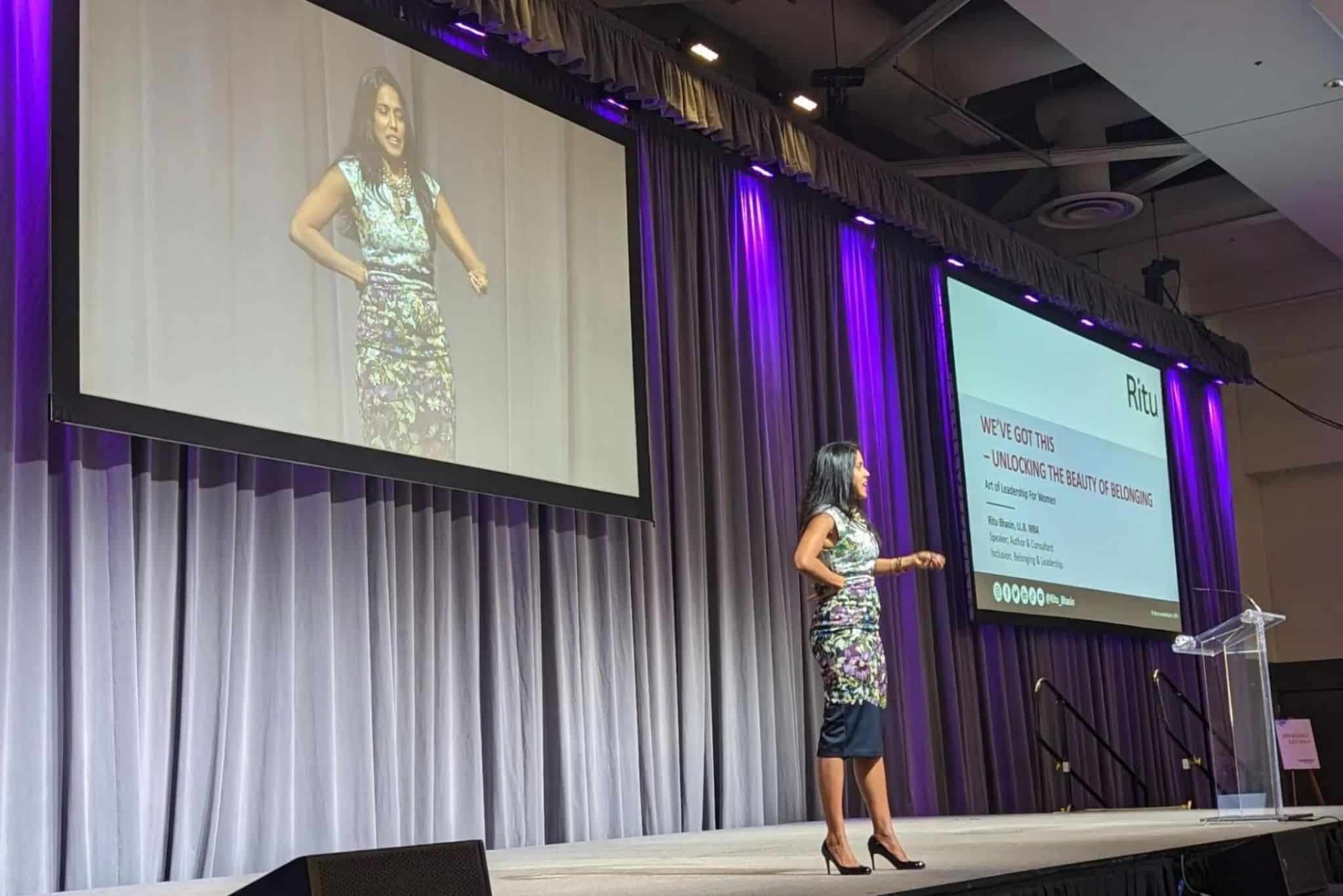5 Steps for Creating Belonging in the Workplace

Belonging in the workplace matters. And it matters more now than ever before.
As I share in my bestselling and award-winning book We’ve Got This, belonging is the profound feeling of being accepted for who you are by your own self and by the people you choose to be bonded with. Belonging in the workplace can only happen when team members are embraced for their authenticity, and especially what makes them different.
As you can probably tell, belonging and authenticity go hand in hand. In fact, belonging is the outcome of creating a work environment where people can bring their (best, professional) authentic selves to work.
But the problem is, and you’ll have heard me say before, our society is in a loneliness and inequities epidemic, and this is also being witnessed in the workplace. We know that many team members continue to struggle to belong at a time when our workplaces are more diverse than ever before. (We have more diversity in almost every cultural identity area – gender, race/ethnicity, age, religion, sexual orientation, and disability – than any moment in time.) Not to mention that belonging is deeply valued by equity-seeking communities, but they’re not experiencing it.
We also know that high belonging in the workplace is linked to a 56% increase in job performance, a 50% drop in turnover risk, and a 75% reduction in sick days. In fact, based on my work and research, there’s a direct connection between belonging and all of the following coveted leadership and talent management experiences in the workplace: retention, productivity, engagement, psychological safety, trust, inclusion, equity, performance, authenticity, innovation, creativity, collaboration, and advancement.
In a nutshell, belonging unlocks all kinds of magic within an organization. But until we, as leaders, do more to change our thoughts, words, actions, and energy to cultivate belonging for all, only some will experience this magic
So how can we make this happen? Here are a few important takeaways to create a sense of belonging for others in the workplace:
- Understand the Concept of Equity – Equity is about understanding the historical legacies and current realities of oppression, discrimination, prejudice, and bias that people experience related to their cultural identities. It’s about recognizing that we don’t all start from the same place – there isn’t a level playing field. As a leader, the more we understand equity, the better able we will be at addressing systemic barriers – thereby creating belonging for others. Explore bci’s playlist, Empowering Equity-Seeking Professionals, to gain more insight on this.
- Interrupt Your Biases – Leaders must engage in bias disruption work, especially at the individual level. While difficult to do, it’s important that we, as leaders, identify how we’re engaging in because it can be so difficult to interrupt our biases, we can benefit from leveraging tools to help us, like Harvard’s Implicit Association Tests, bci’s playlist on Understanding Bias, plus our free bias tip sheets.
- Cultivate Authenticity – As I touched on above, belonging is the outcome of creating a workplace culture that’s rooted in authenticity. Given this, I encourage leaders to leverage my Three Selves Framework™– a model for living, working, and leading more authentically, and for cultivating greater belonging in the workplace. I dig into this powerful tool in both my bestselling books The Authenticity Principle and We’ve Got This – and trust me when I say it’s a game-changer! For a quick read on the Three Selves™, check out these blogs – Part 1 and Part 2.
- Share Your Vulnerabilities – If we want our team members to be vulnerable and authentic about who they are in the workplace, as leaders we must also do this. In fact, as I often say, leaders must go first. What this means is that, as a leader, you’ll want to give your team members a window into who you are, what you’re ashamed of, and what causes you stress. You’ll want to model for them what it looks like to be vulnerable about your insecurities – and do this consistently to create trust. Learn more about being vulnerable here.
- Develop Your Core Wisdom – Core Wisdom is the knowledge you hold within that leads you to tune in to and understand what your body and mind are signaling and what to do about this. As a leader, your core wisdom will help you to be more impactful and attuned to: coaching for inclusion; signaling your empathy; being a better ally and leader; and, ultimately, cultivating belonging. To learn more about how to grow your Core Wisdom, check out We’ve Got This.
As you can imagine, it takes resilience, diligence, and hard work to bring life to these must do’s for creating belonging in the workplace. But leaders who commit to this work, know the beautiful outcome: their teams are more engaged, empowered, joyful, creative, productive, and authentic – all of which leads to belonging at work. So, please don’t fear the hard work!
Are you with me? I’d love to hear from you! Please send me a message through our Contact Us page, LinkedIn, or Instagram.
Reach out to the bci team here to learn more about our range of cutting-edge programming on how to cultivate inclusion in the workplace.
If you’re looking for more inclusion related resources, check out:
- bci’s dedicated playlist: Cultivating Authenticity and Belonging
- bci’s blog page
- Article: Authenticity: The Transformative Approach to Building Inclusive Environments
- My blog page: Belong to Yourself
- My Belonging Toolkit
- My playlist: Experience Belonging

